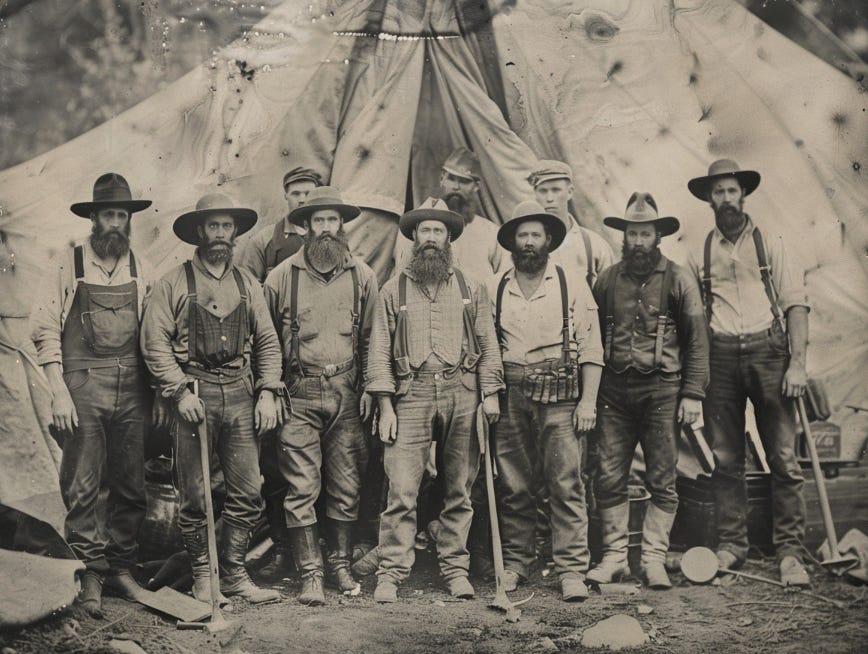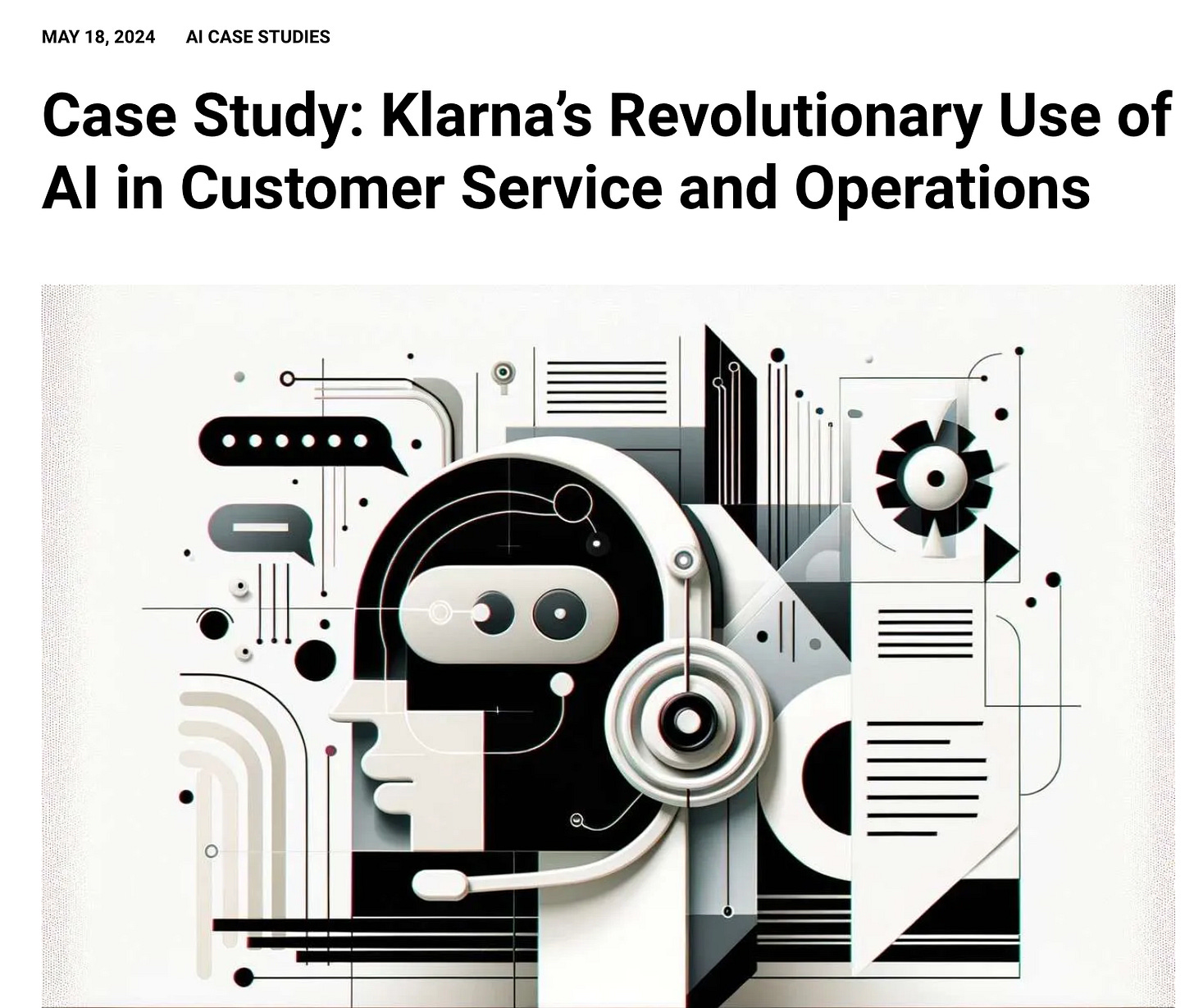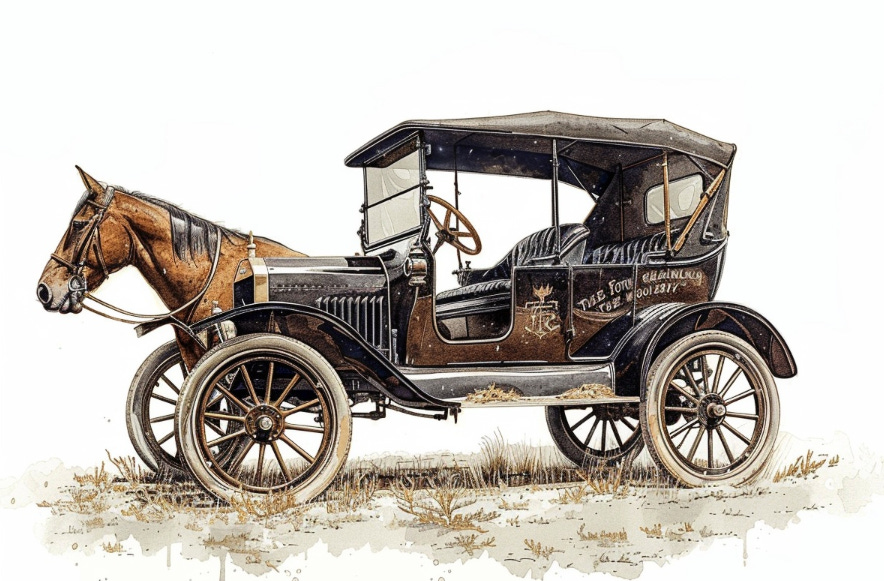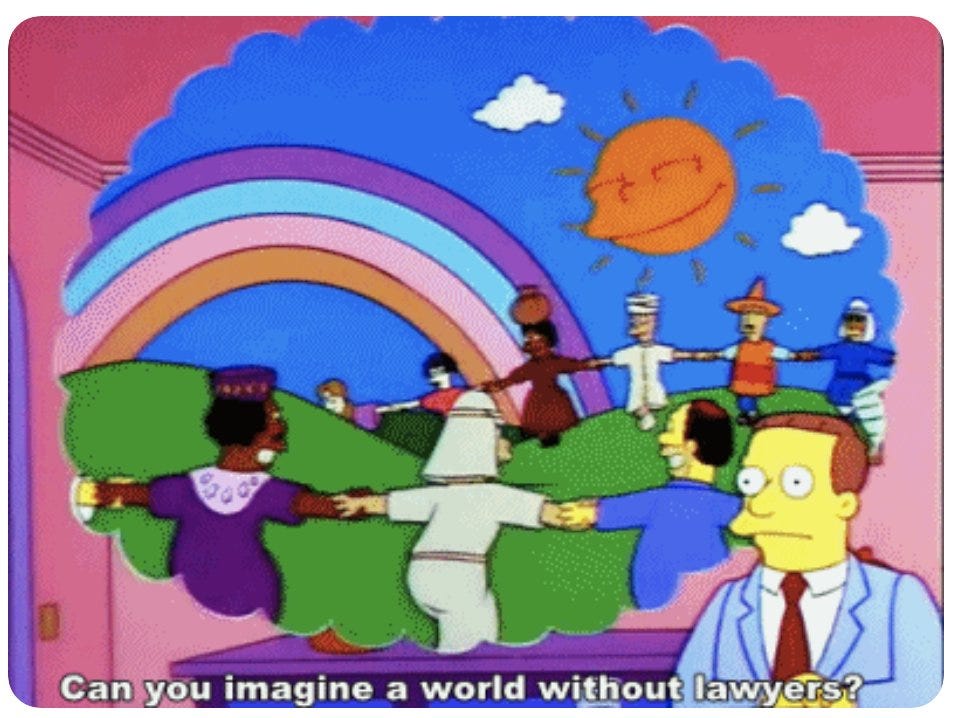AI Is Eating the World... So What?
Navigating the AI-Driven Economic Shift
Marc Andreessen coined the phrase "software is eating the world" in a 2011 WSJ essay during a time of rapid growth in the tech industry, when software companies were gaining significant valuations.
Andreessen, a prominent venture capitalist who co-founded Netscape, argued that despide the tech bubble burst of the late ‘90s, major tech software companies were now poised to disrupt and transform traditional industries, leading to a significant shift in the global economy.
He was, in a word, correct.
Today, software is everywhere—it delivers food and goods, manages transportation, healthcare, business, media, and basically everything.
And all those who failed to envision the success of Facebook, Google, Twitter, etc. and other tech giants missed out big time.
Yet little more than a decade after Andreessen's essay, another technology has emerged with a disruptive potential that’s perhaps several scales of magnitude larger—it’s AI’s turn to eat the world.
But will the nom-nom-nom of generative AI turn out to be just a nibble, or will it be the colossal chomp investors are betting on?
Let’s “dig in” and see if we can’t start to make some sense of it all.
The biggest AI winner so far
During a gold rush, sell shovels. That’s precisely what Nvidia, the top manufacturer of shovels GPUs, is doing—selling companies the technology that makes AI applications possible.
Image prompt for Midjoruney: vintage group portrait, gold rush prospectors from various backgrounds, lined up with their tools, authentic 19th century mining camp backdrop, high detail black and white, historical accuracy, 1860s wet plate collodion style
And it’s going well: at its peak on June 18, 2024, Nvidia was briefly the most valuable company in the world with a market cap of $3.34 trillion (with a T), surpassing Microsoft, Apple, and Google.
But will Nvidia soon meet its untimely end, going down in a spectacular blaze of glory à la Pets.com?
Unlikely—though a price correction is possible.
With Nvidia leading the charge, AI hype has been bolstering US stocks since early 2023, helping lift the global economy out of its post-COVID blues, as investors anticipate that massive productivity boosts will turn into increased revenue.
AI will assist, not replace
Black Eyed Peas frontman will.i.am sees AI as a tool to enhance human creativity, rather than replace it. I couldn't agree more.
For example, though AI helped me to create this post (Perplexity to quote resources, Chatgpt and Claude to wrap my head around concepts) it was still edited and partially co-authored by an actual human (shout out to the talented Aaron Raizen who I’m pretty sure isn’t a robot).
Today’s generative AI can recycle ideas—bashing existing data points into one other—but it can’t really craft coherent new ideas, for example the concept that AI is not necessarily eating the world.
At least, it can’t do it yet.
Nearly everyone who’s added AI to their day-to-day work tasks says that it changed how they do some things, boosted productivity, improved processes, maybe even added more work.
But it hasn’t replaced very many people's day-to-day work. It may replace full customer support teams one day, but, for example, it also helped the company Klarna increase revenue and efficiency by exactly… a whole bunch!
Case Study: Klarna’s Revolutionary Use of AI in Customer Service and Operations
Klarna sees its AI assistant as a success. Is it too early to tell?
Is it going to be like this forever? Doubtful, but for now, the human factor is still critical and most of the “AI will steal our jobs” fear comes from people with outdated worldviews.
You know, like back when you could be inefficient, slow, but still make a ton of money. (“Those were the days my friend, we thought they’d never end.”)
If we look at law firms, for example, we see their work has barely changed for decades. And though you didn’t hear it from me, some say the top firms that made the big bucks did so through a network of long standing connections—and by having younger interns busting their humps for peanuts.
That system was and still is broken.
So if gen-AI continues to advance to the point where it replaces most lawyers, would I be upset? Heck to the no.
Their work probably wasn’t that important if it was so repeatable. If they become a horse pulling a cart in a world full of Ford Model Ts, then it’s a good thing.
Image prompt for Midjoruney:: vintage advertisement style, Model T Ford centerpiece next to a horse, white background, 1900s graphic design elements, bold typography 'The Car for the Great Multitude', high detail on vehicle, muted color palette
I mean, can you imagine a world without lawyers? Sounds OK to me. 😂
Consulting will never be the same
Consulting firms, including the Big Four, are rapidly expanding into industries like law, leveraging AI for growth and transformation.
AI has become essential, enhancing efficiency, helping develop new solutions, and improving client services.
The future of consulting, and perhaps many other fields, will be one of collaborative intelligence, combining human creativity with AI scalability.
These firms have easy access to enterprise clients and are looking to make—and are already making—billions from gen-AI by partnering with leading AI startups for industry-changing solutions.
For example, PwC's partnership with Harvey aims to introduce an advanced legal AI solution, and there are probably 2000 similar solutions being developed around the world right now.
Legal firms will have difficulty resisting AI's impact, raising the question: should they even try, or should they just embrace it?
What if AI is actually eating the world?
When software ate the world, it gave us services like Uber that “disrupted” transportation and food delivery, or Airbnb and Booking.com that transformed lodging and accommodations.
We got things like better medical documentation, streamlined financial transactions, personalized entertainment recommendations, and so much more.
Overall, the wealth of humanity, as well as hunger and healthcare issues, have all improved.
Software ate the world, and well, it was kinda great. Turns out the world can be pretty tasty.
So even if AI is eating the world, like software before it, maybe that isn’t necessarily a bad thing.
Maybe AI’s chomp-chomp will be a win-win for us all.
Maybe it will help us explore the galaxy, find a cure for cancer, and create a completely new understanding of who we are and what we do here.
Bon appetit!








